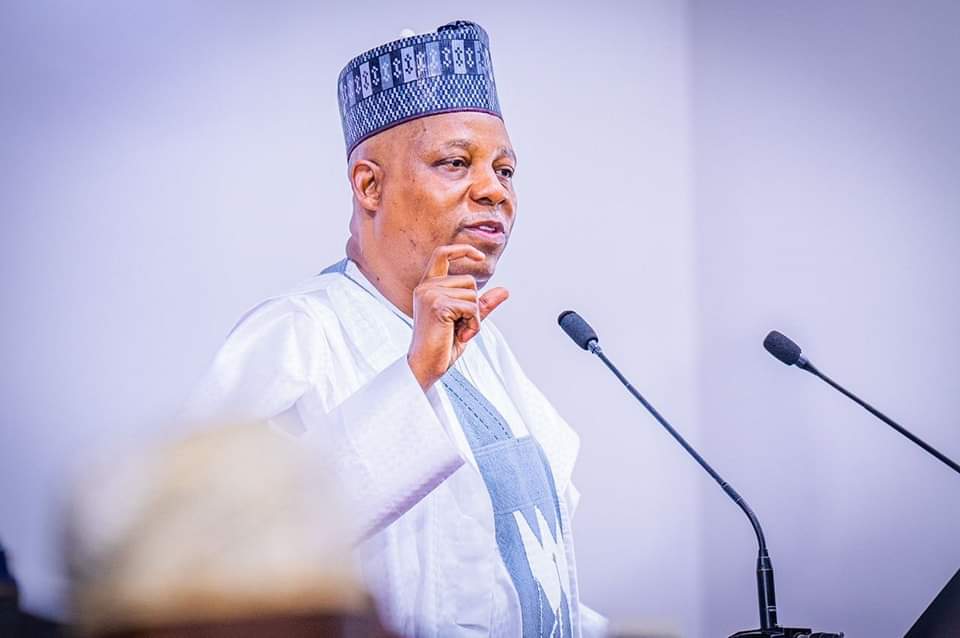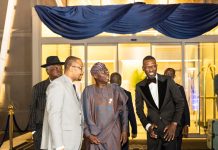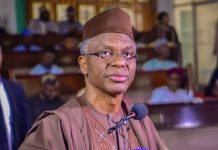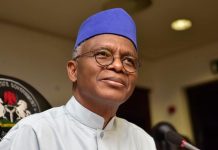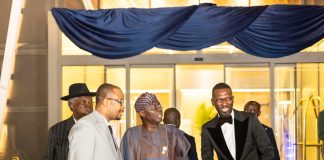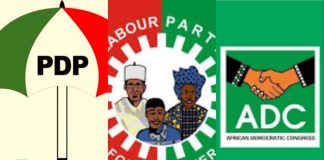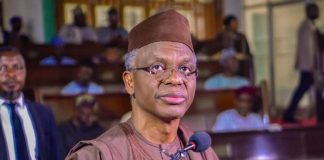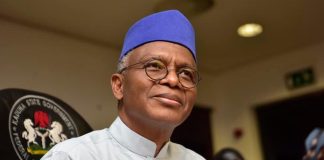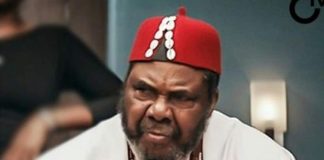🌿 Ruzu Non-Alcoholic Herbal Bitters
Ruzu Non-Alcoholic Herbal Bitters is a natural health supplement specially formulated to:
- ✅ Promote general wellness
- ✅ Detoxify the body
- ✅ Support the treatment of various ailments
Made from a powerful blend of 100% organic and medicinal herbs, Ruzu is completely alcohol-free, making it ideal for:
- 👪 All age groups
- 🌱 Health-conscious individuals
- 🌿 Anyone seeking non-alcoholic herbal remedies
Whether you're looking to boost your vitality, cleanse your system, or support healing the natural way, Ruzu Bitters offers a trusted herbal solution.
A solid economic foundation must be a top concern, according to Vice President Kashim Shettima, if the government is to reach its $1 trillion economy by 2030.
President Bola Tinubu is reportedly dedicated to economic changes that prioritize inclusive growth and close financial disparities throughout the nation, according to Vice President Shettima.
When he established the Presidential Committee on Economic and Financial Inclusion (PreCEFI) on Monday, he made this statement in light of the federal government’s pledge to create a trillion-dollar economy by 2030.
Read Also: 2027: Tinubu’s Minister Keyamo Addresses Speculation on Delta Governorship Race
Stanley Knwocha, his spokesperson, said that private sector participants also signed an investment agreement at the event to supply the basic infrastructure required for the Aso Accord plan to fully operationalize.
The agreement, which was signed at the State House Banquet Hall on Thursday, April 25, 2024, is a fundamental component of the Tinubu administration’s plan to revolutionize the country’s economy.
Speaking at the Presidential Villa in Abuja for the inaugural ceremony and signing off on the investment commitments, the vice president urged all parties involved to back the government’s endeavor to close the financial gaps facing millions of unbanked individuals.
He asserts that Nigeria’s economic goals call for more than just hope but also thoughtful plans and tactics motivated by our will to succeed.
Our goal of having a $1 trillion economy by 2030 will only be a pipe dream unless we build a solid basis. Hope is not the only foundation of dreams. He stated, “They are the culmination of thoughtful concepts and tactics, motivated by our will to succeed.”
While acknowledging the advancements since the Financial Inclusion Strategy’s inception in 2012, Senator Shettima explained that, as of 2023, inclusion rates have increased from 60.3% to 74%; nevertheless, she also pointed out that, behind these numbers, there are still millions of people who are unable to access the financial system.
“We welcome this investment as a chance to move Nigeria’s economy toward the $1 trillion target by 2030, create jobs, and stimulate growth for our startups and MSMEs. This goes beyond just another government program. Bridging the economic gap and maximizing our people’s potential is a national duty and a higher calling.
The establishment of this committee and the officialization of this investment promise serve to further President Tinubu’s commitment to an inclusive economy, which the National Economic Council (NEC) has supported.
In order to ensure that every Nigerian, regardless of location or position, is included in our economic growth narrative, we are committed to reducing the short-term effects of economic changes and increasing financial prospects. But the burden of this vision falls on all of us assembled here today,” he said.
Shettima added that several groups have persisted in “facing systemic barriers that deny them the opportunity to reach their full economic potential,” including women, youth, rural populations, MSMEs, and some areas.
He clarified that the new Presidential Committee would be assisted by an Implementation Secretariat and function through the Governance Committee (GovCo) and a Technical Committee (TechCo).
“This framework guarantees that our approach is not only strong but also flexible to changing opportunities and challenges in financial and economic inclusion,” the vice president continued.
A group of key investors, led by IQS Africa, are dedicated to supplying the necessary infrastructure for the Aso Accord’s execution.
Governor Peter Mbah and Wale Edun Make a Financial Inclusion Commitment
Peter Mbah, the governor of Enugu State, stated in a goodwill message that growth in the economy with the interests of the weak and vulnerable at heart is at the heart of what the state government is doing and that economic and financial inclusion has been crucial to the state’s phenomenal increase in internally generated revenues.
Wale Edun, Minister of Finance and Coordinating Minister of the Economy, stated in his remarks that the Ministry of Finance is still dedicated to the work given to the Presidential Committee and that it will be in charge of converting the Aso Accord’s vision into initiatives and reforms that are both practical and significant.

